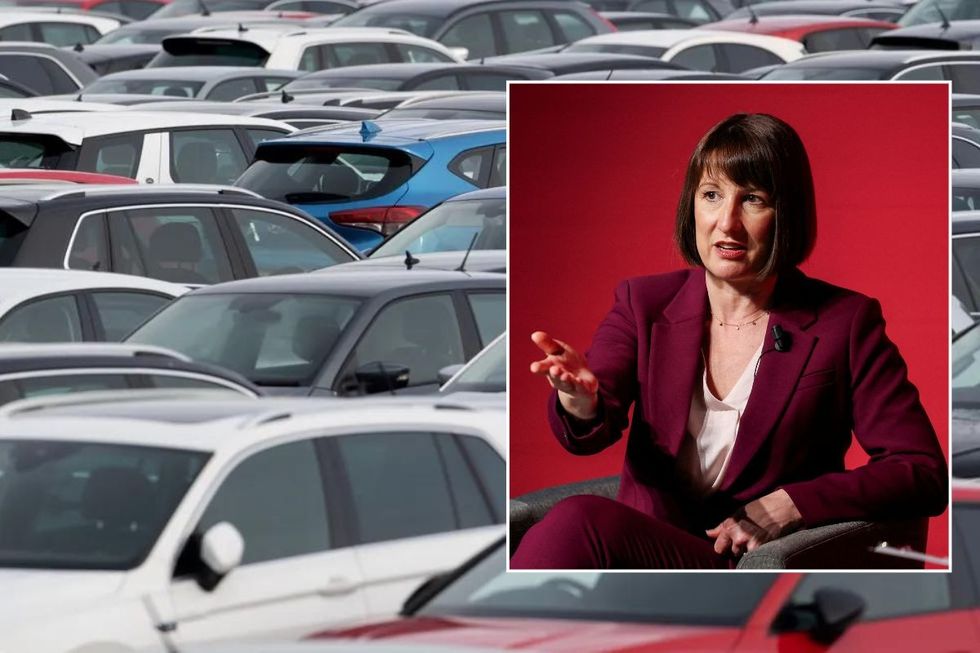The UK’s new car market has declined by 10.4 per cent in April 2025, according to new data, as experts point to car tax charges as a potential deterrent for motorists.
The new research from the Society of Motor Manufacturers and Traders (SMMT) marks the sixth fall in the last seven months, with 120,331 units registered during the month.
The continued downturn reflects the fragile economic backdrop and weakened consumer confidence affecting the automotive sector, with 13,943 fewer cars registered compared with the same month last year.
Registration levels are now 25.3 per cent behind pre-pandemic April 2019 levels, highlighting the sector’s ongoing challenges.
Do you have a story you’d like to share? Get in touch by emailing motoring@gbnews.uk

In what is traditionally a quieter month following the March number plate change, volumes were further impacted by the late timing of Easter, resulting in fewer working days.
Implementation of car tax changes affecting all new cars, including the Expensive Car Supplement, which became applicable to many new EVs from April 1, also pushed transactions into March as buyers sought to avoid tax increases.
In terms of powertrain performance, battery electric vehicles bucked the downward trend, increasing by 8.1 per cent to 24,558 units and taking more than a fifth of the market.
Plug-in hybrids also performed strongly, with registrations up 34.1 per cent. This contrasted sharply with traditional fuel types, as petrol registrations fell by 22 per cent and diesel by 26.2 per cent.

John Cassidy, managing director of sales at Close Brothers Motor Finance, commented: “Following a record month for electric vehicle registrations, April has proved to be something of a step back to normality in this regard.
“Manufacturer discounts on vehicles have fallen slightly, and the introduction of Vehicle Excise Duty and the Expensive Car Supplement on electric vehicles has dampened buyer activity.”
Despite the growth in electric vehicles, the sector is still falling short of regulatory requirements. Year-to-date, EVs have reached a 20.7 per cent market share, making them the second most popular powertrain after petrol.
However, this remains below the 28 per cent required under the terms of the Zero Emission Vehicle (ZEV) mandate.
While the Government’s recently proposed amendments to the Mandate requirements are welcomed by industry experts, the SMMT notes that targets remain “incredibly challenging” and more must be done to stimulate demand.
Mike Hawes, chief executive of the SMMT, said: “April’s performance is disappointing but expected after March’s surge.
“Another month of growth for electric vehicle registrations is good news, however, even if demand remains well below ambition.
“EV uptake is still being heavily and unsustainably subsidised by the industry, which is why a compelling package of measures from government is essential if consumers are going to make the switch.”
LATEST DEVELOPMENTS:
- Driving licence changes to ban motorists carrying passengers could see other restrictions introduced
- Motorists slapped with 41,000 fines a day amid calls for total overhaul of parking laws ‘as soon as possible’
- British drivers send ‘clear signal’ in supporting electric cars as petrol and diesel sales ‘nosedive’

The SMMT has called for specific government incentives to boost electric vehicle adoption, including halving VAT on new EV purchases, scrapping or amending the VED Expensive Car Supplement, and equalising VAT paid on public charging to match that levied at home.
The latest market outlook has revised up full-year 2025 new car registrations to 1.964 million units, but expectations for 2026 remain below two million for what would be the seventh successive year.











Follow